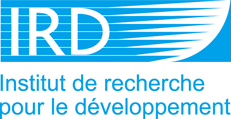Mathilde Pascal
Mathilde Pascal is an epidemiologist at the Environmental Health Department of the French Institute on Health Surveillance. Her work is related to the health impacts of air quality and to the development of heat prevention plans. Since 2007, she is responsible for the animation of interdisciplinary climate change working group within the Institute. She holds an engineer degree in Fluid Mechanics and a master degree in environmental sciences.
Health impacts of climate change: setting surveillance priorities in France
Recognizing that climate change will impact human health, an interdisciplinary climate change working group within the French Institute for Public Health Surveillance has identified the main needs for adaptation of the Public Health sector, focusing on surveillance and alert.
Risks commonly identified for European countries were considered. They include extreme weather events, infectious diseases, and long-term environmental changes. The flexibility and adaptability of existing surveillance and alert programmes covering these risks were assessed by the working group based on a literature review, expert consultations and analysis of past events in France. Both environmental monitoring systems and health end points surveillance systems were included in the review. As a result, data gaps were identified, as well as possible options for future developments.
Assessment of the health impact of climate change is mostly qualitative. Limited data are available from the literature, and rely on strong hypothesis on the evolution of the climate and of the society. It is not possible to develop new surveillance systems on such hypothesis. However, for all considered risks, surveillance of the environment and of the presumed health effects is already available, either through continuous monitoring systems or through ad hoc studies. Strengthening these systems would allow the development of databases for studying the health effect of climate change. Data quality, data availability and linkage of environmental and health databases are key steps in this process. A better understanding of the determinants of exposure will be essential to understand potential climate risks. Syndromic surveillance could be fruitfully used to complement classical systems, as it provides decision-makers with timely data useful for prevention and crisis management and allows the identification of unexpected events.
A strong interaction with research is also required through the development of interdisciplinary partnerships relying on existing networks. Advanced statistical methods will be needed to assess interactions between stressors, and evolution of the dose-response relationship over time. Collaborations with environmental and climate modellers are an asset to develop data at a spatial and temporal scale relevant for health assessment.
Finally, mitigation strategies have the potential to generate major health co-benefits. Decision-makers should have access to health impact assessments of the different available options. Surveillance should be used to monitor and evaluate the efficiency of these strategies.
If you wish to contact Mathilde Pascal, please click here




